The 2025 iteration of the Lab continued to develop its critical and collaborative curatorial practice through a series of workshops, seminars, and public events. Highlights included sessions on institutional critique, feminist methodologies, and invisible labour, as well as contributions to the MA Degree Show Now You See, held at the Cookhouse Gallery, Chelsea College of Arts, from 7 to 12 July 2025. Across these activities, the Lab remained engaged with questions of visibility, authorship, and care in contemporary curating.
And Others Workshop with Felicity Allen: Exploring The Disoeuvre
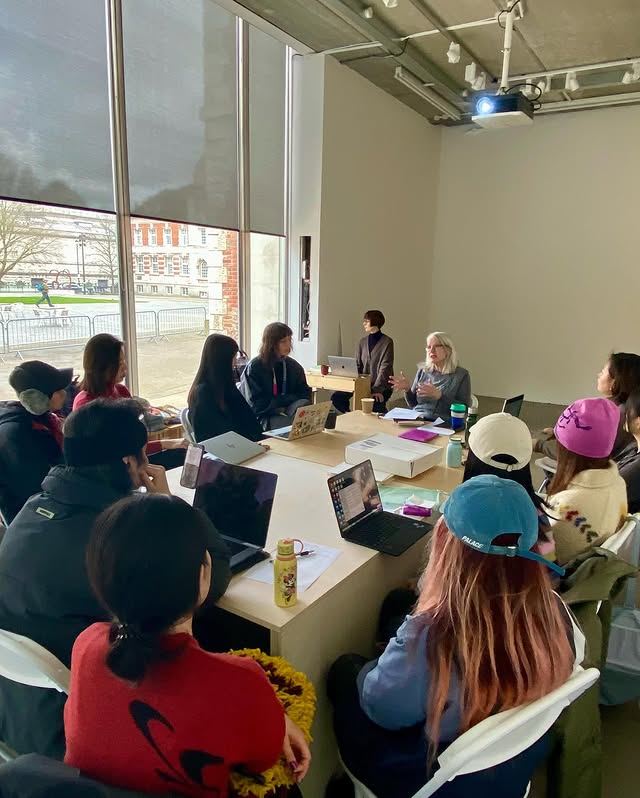

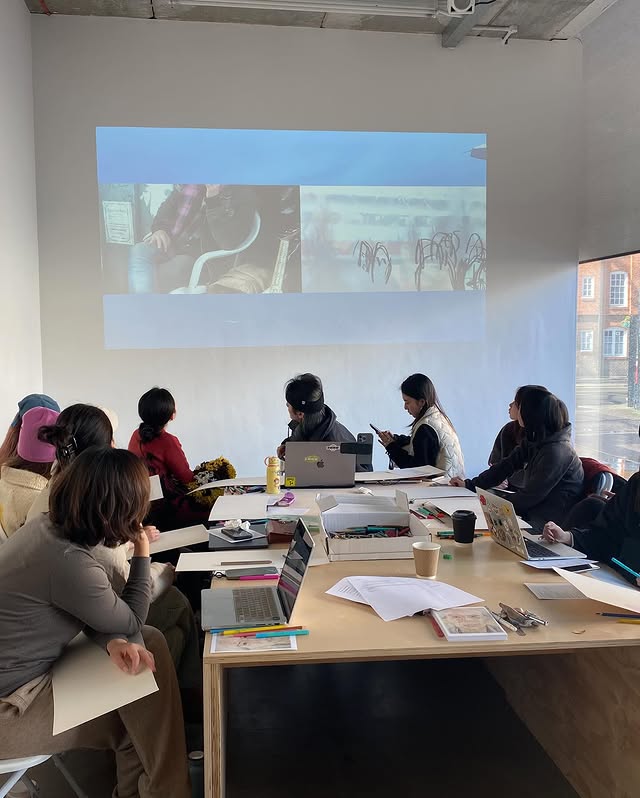
On 14 March 2025, the And Others Lab was delighted to welcome Felicity Allen for a workshop around her concept of The Disoeuvre, held as part of our residency at Chelsea Space.
The Disoeuvre is central to the work of the And Others network. Together, we discussed interruptions, expectations of continuity, and how we might rethink our own creative trajectories.
We also shared experiences about the conditions faced by cultural workers in the UK, China, Chile, Syria, and Serbia, followed by a drawing session. To close the day, we each received a thoughtful gift — a box of Stan’s pens to keep.
Mapping Labour: From Invisible to Visible-20 March 2025
Mapping Labour: From Invisible to Visible is a workshop organised by And Others Lab (MA Curating and Collections, UAL), exploring the concept of invisible labour in the art field. Through three activities and open discussions, we aim to create a space to share thoughts and concerns and explore new forms of collaboration.
Workshop 1: CV-making
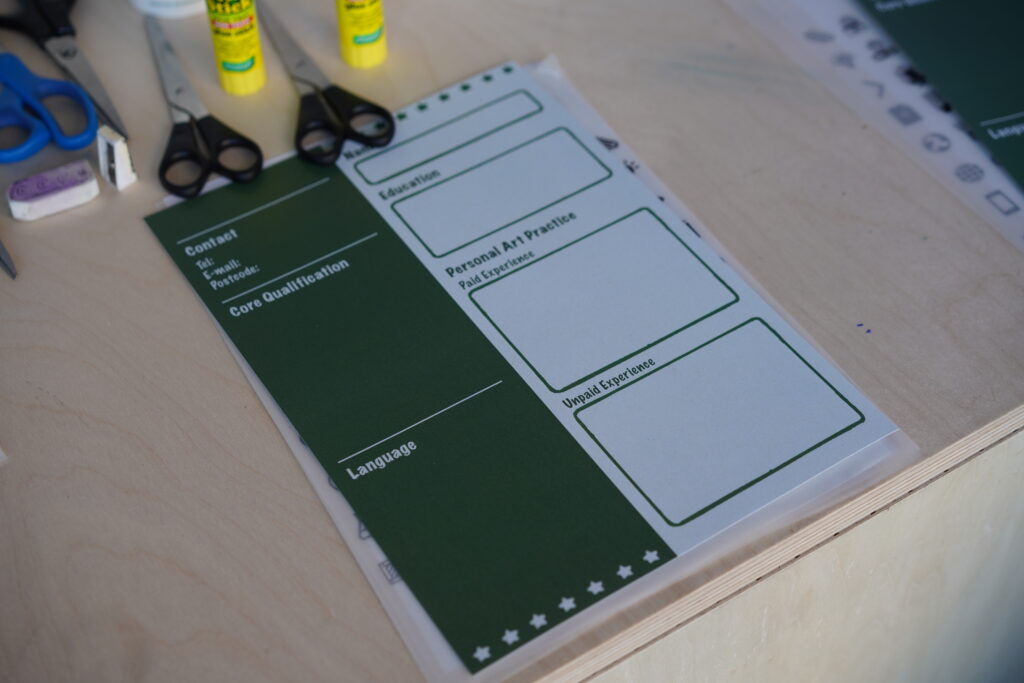
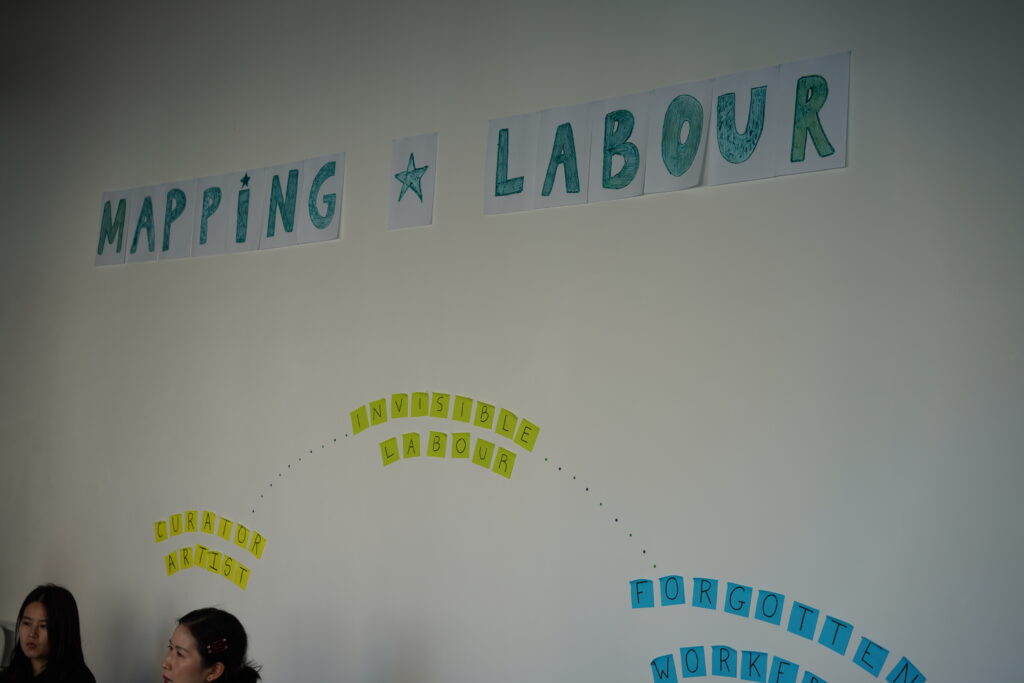
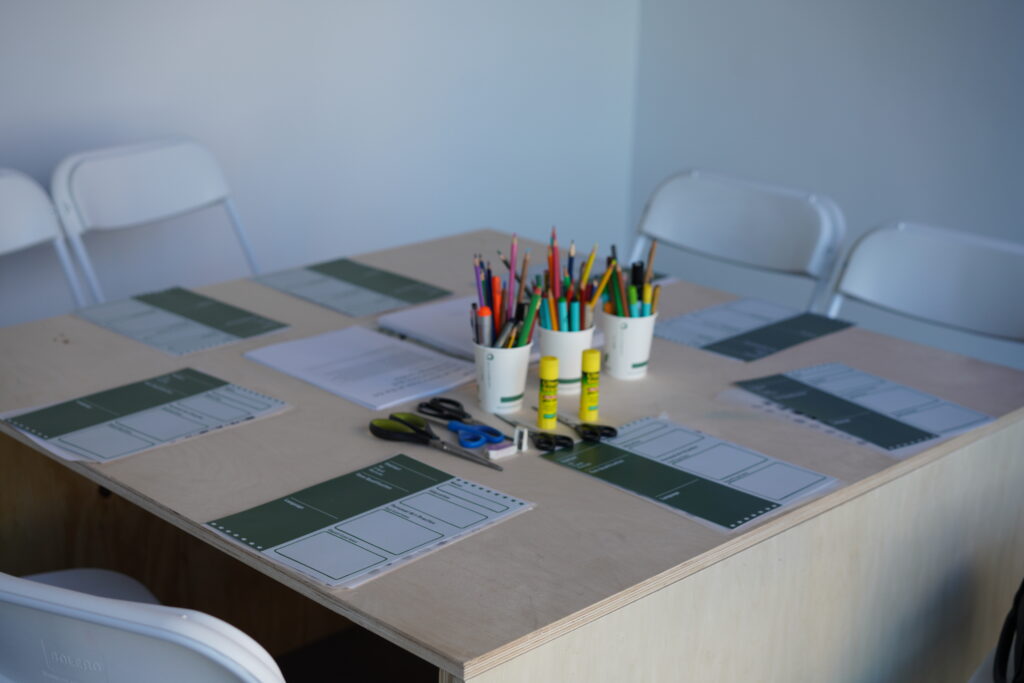
This activity uses the creation of a CV as a tool to guide participants in exploring and presenting their educational background, skill sets, and personal identity within a structured writing framework. The CV includes key elements such as name, education, core qualifications, languages, paid and unpaid work experience. Participants are encouraged to think about how informal experiences, invisible labour, and emotional investment can be transformed into visible and documentable professional narratives.
By deconstructing and reconfiguring the standard format, the CV-making workshop invites participants to use the CV as a means of self-narration and expression. In this process, writing is not only about employment; it becomes a reflective practice that enables individuals to reorganise everyday labour, cross-cultural identities, and layered experiences into a powerful articulation of personal value.
Besides, before writing the CV, participants engaged in reading Lots of Shiny Junk at the Art Dump: The Sick and Unwilling Curator, which was written by Lina Džuverović and Irene Revell, critically reflects on exhaustion, refusal, and the pressures of productivity within the art world.
Workshop 2: Self-portrait
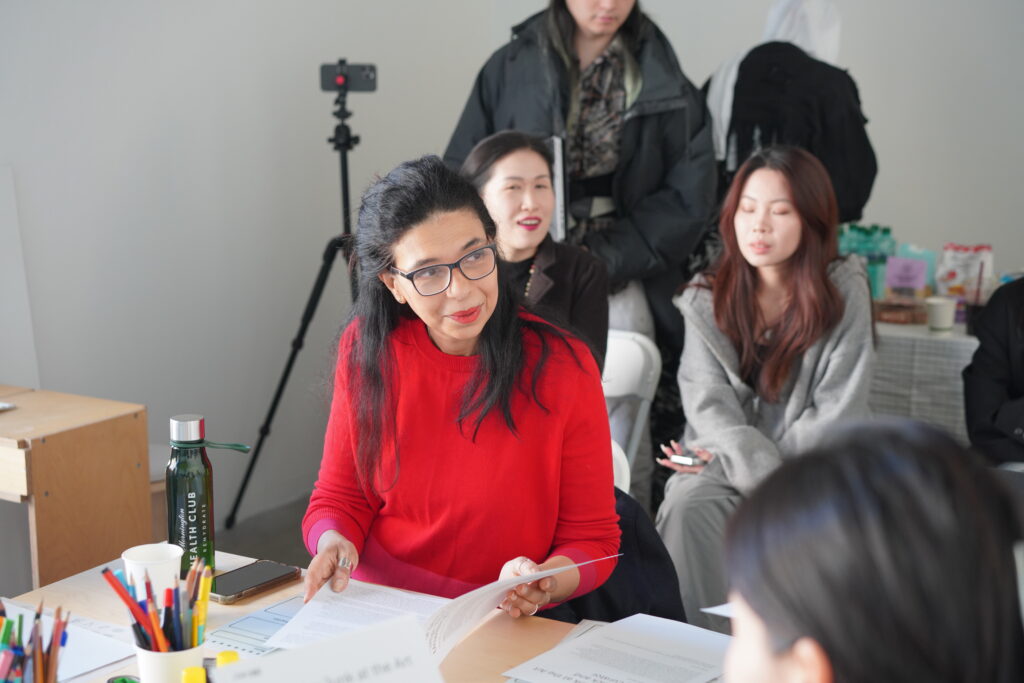
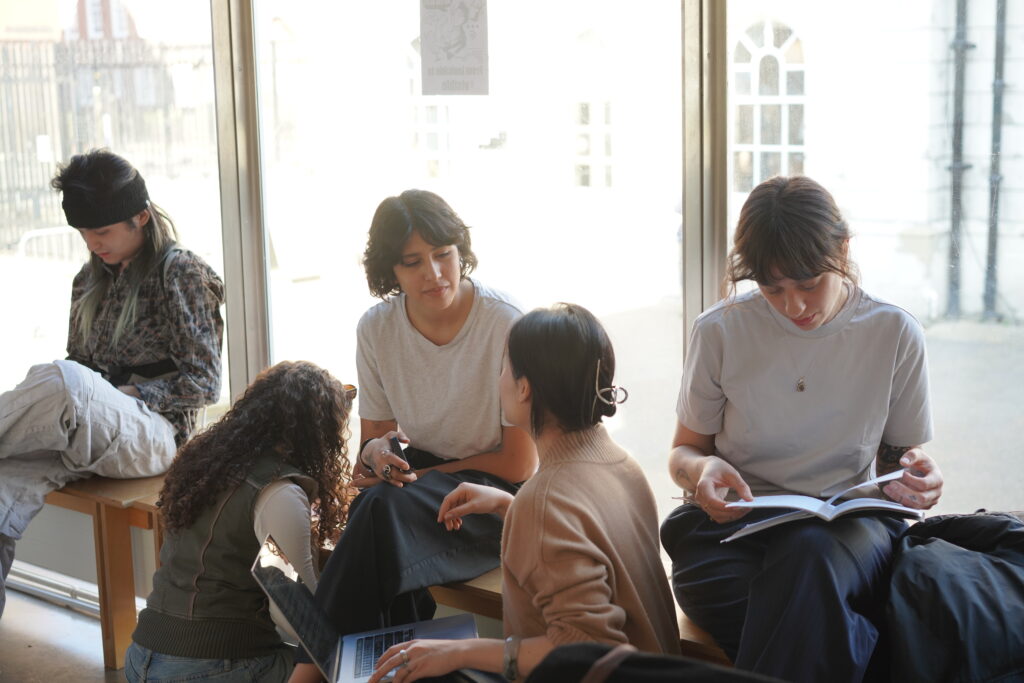
The self-portrait centres on the And Others project’s research into invisible labour, using portrait-making as a medium to guide participants in reflecting on the often-overlooked efforts and contributions embedded in their daily life, work, and creative practices. Through guided meditation, visual expression, and open discussion, this activity encourages participants to begin from personal emotions and lived experiences, exploring how individual identity is shaped, blurred, or obscured within collective labour structures.
The activity includes three parts: a 5-minute guided meditation to help participants enter a calm, receptive state and attune to their own presence, followed by a 20-minute self-portrait creation phase, where participants are free to choose their expressive form—through drawing, collage, or other media—using abstract symbols, fragments of the body, and more, and no formal artistic skills are required. Finally, participants are invited to share their creations and reflect on the emotions and thoughts that emerged during the process.
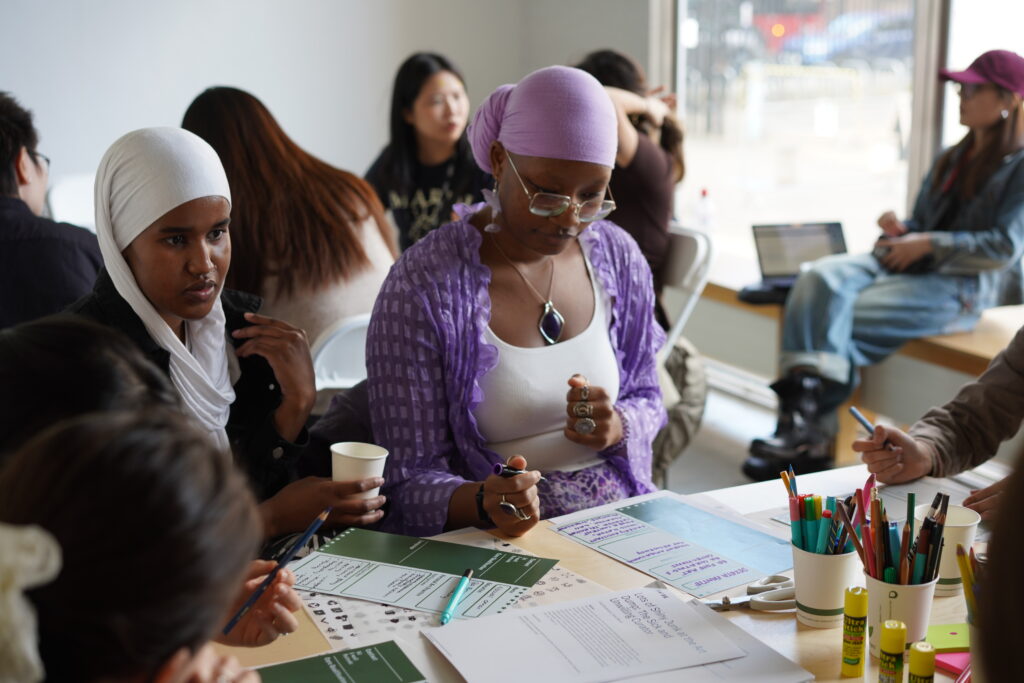
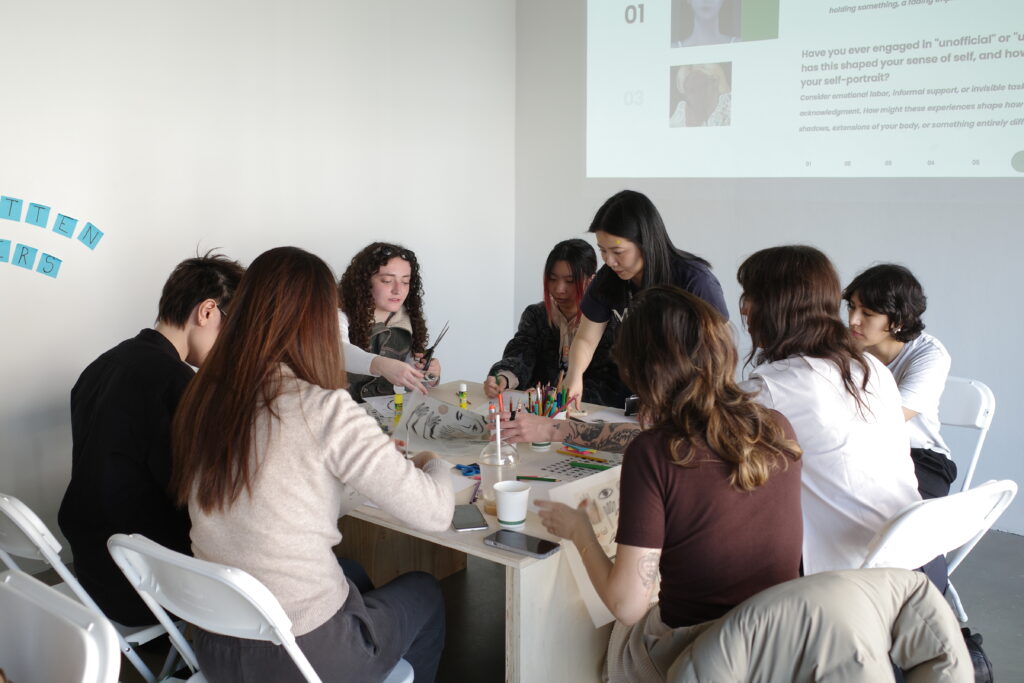
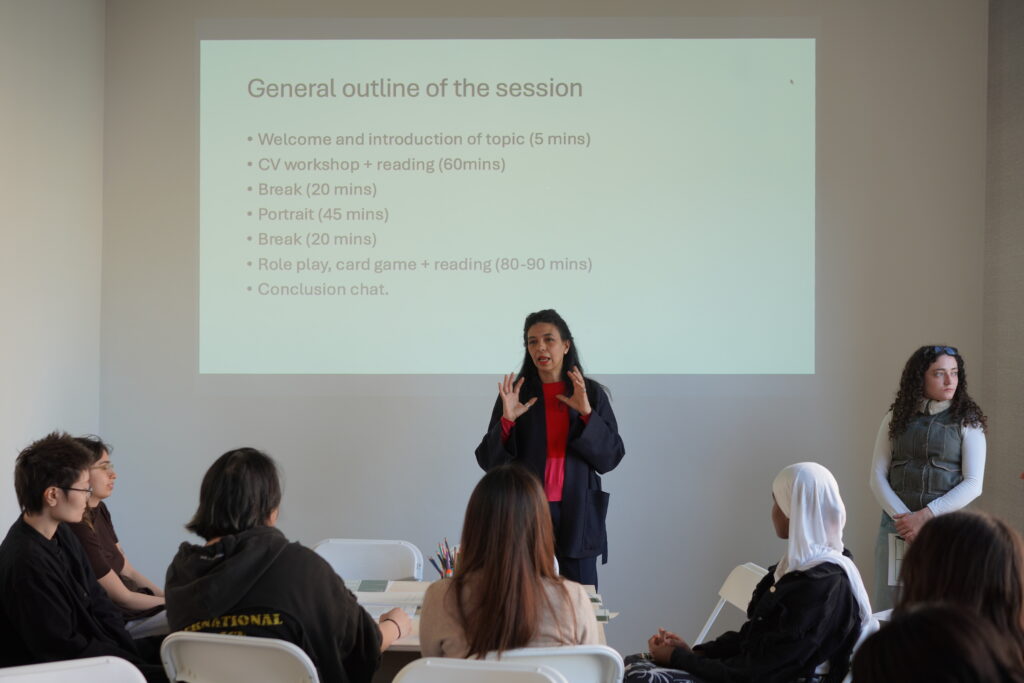
This workshop aims to offer each participant the opportunity to articulate “invisible labour” through visual language, transforming internal experience into a visible and embodied expression and fostering a renewed recognition and resonance of self-worth.
Workshop 3: Edinburgh Statement: Role-playing

The role-playing workshop was inspired by Serbian conceptual artist Raša Todosijević’s thesis entitled The Edinburgh Statement (1975). In this text, he examines who truly profits from art and whether artists themselves benefit in a meaningful way. Todosijevic lists a range of individuals and industries that benefit from the presence of art, from material suppliers and collectors to auction houses, critics, the media and even estate agents. His critique highlights how the art world is deeply entwined with commercial interests, often leaving artists with minimal financial reward despite their central role.

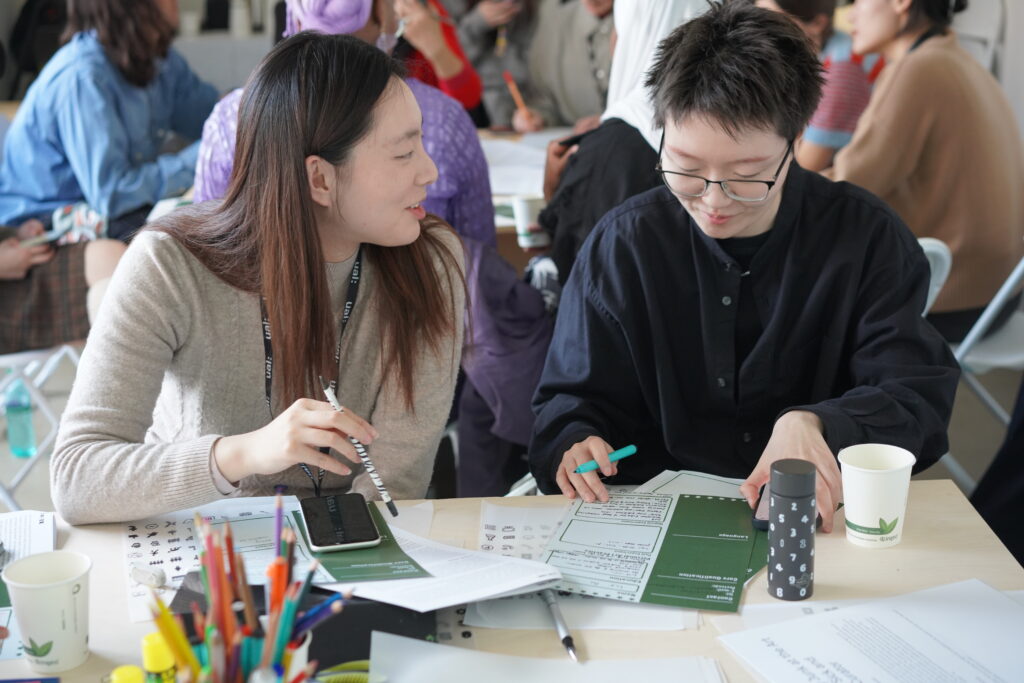
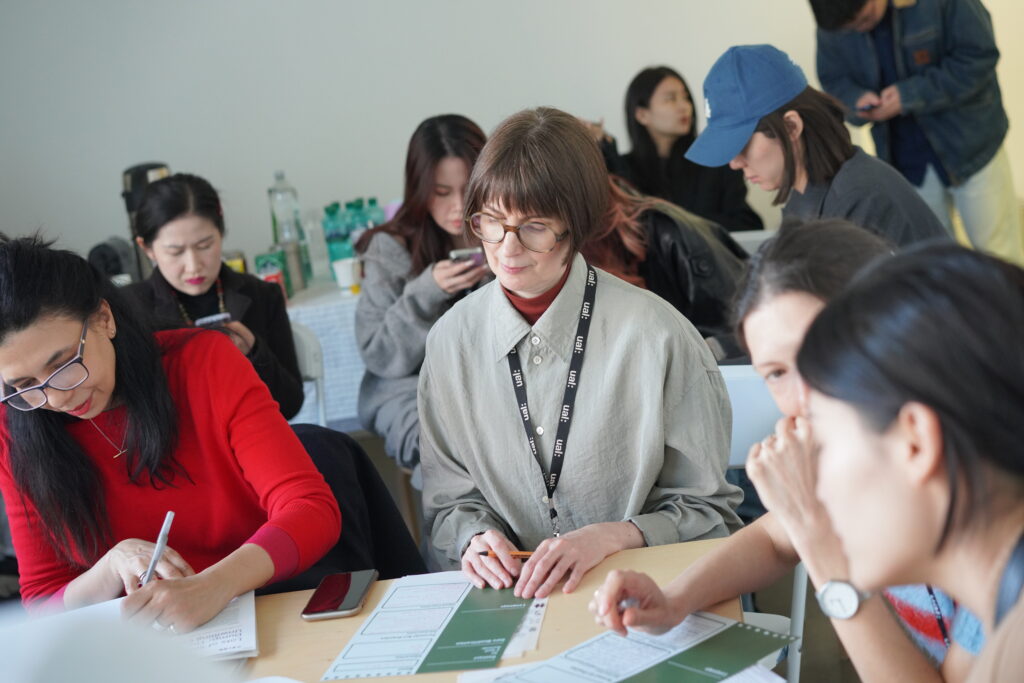
The activity unfolded through group reading, a role-playing card game, open discussion and individual writing. Beginning with a reading of Todosijević’s essay, the session offered space for spontaneous reflections and reactions. Participants considered who holds power in the art world and whose voices remain unheard. The card game was set on the eve of the opening of an international art fair. Each participant assumed the role of an artist, journalist, critic or collector, engaging in discussions around value, influence and survival. A sudden twist followed: news of price-fixing began to spread at the fair. Tensions rose. Participants were prompted to define their positions—whether to defend the market, call for change, protect their own interests or seize the moment.
This workshop concluded with individual reflections. Each participant wrote a short statement proposing one key change needed in the art world, along with one action to help make it happen. Through this process, the workshop encouraged a critical rethinking of value, power and participation in contemporary art, opening up space for imagining a fairer and more inclusive system.
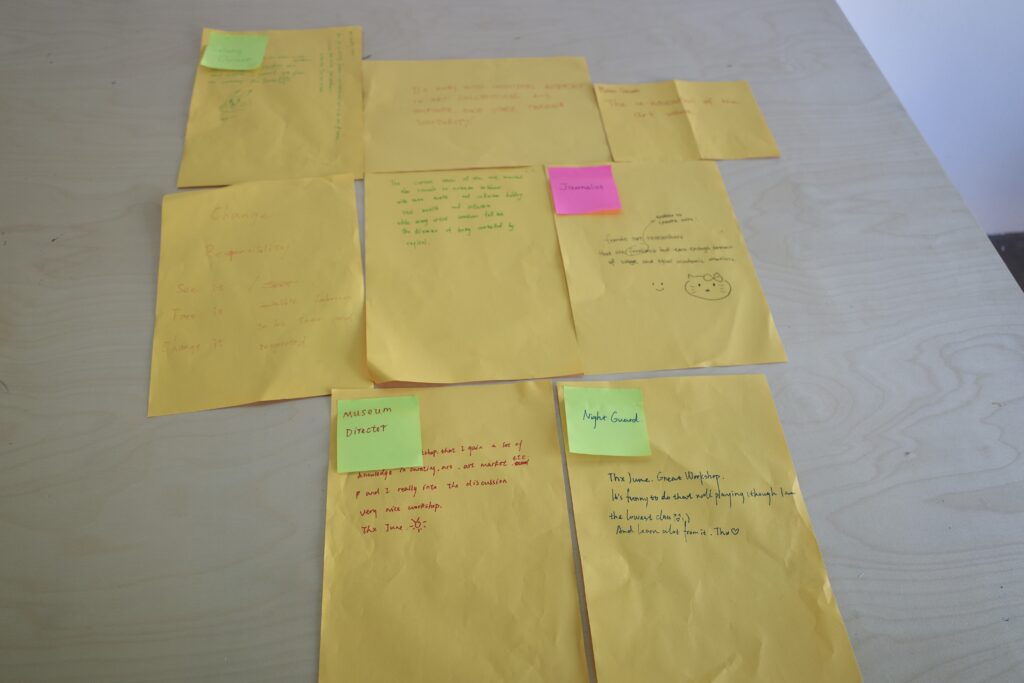
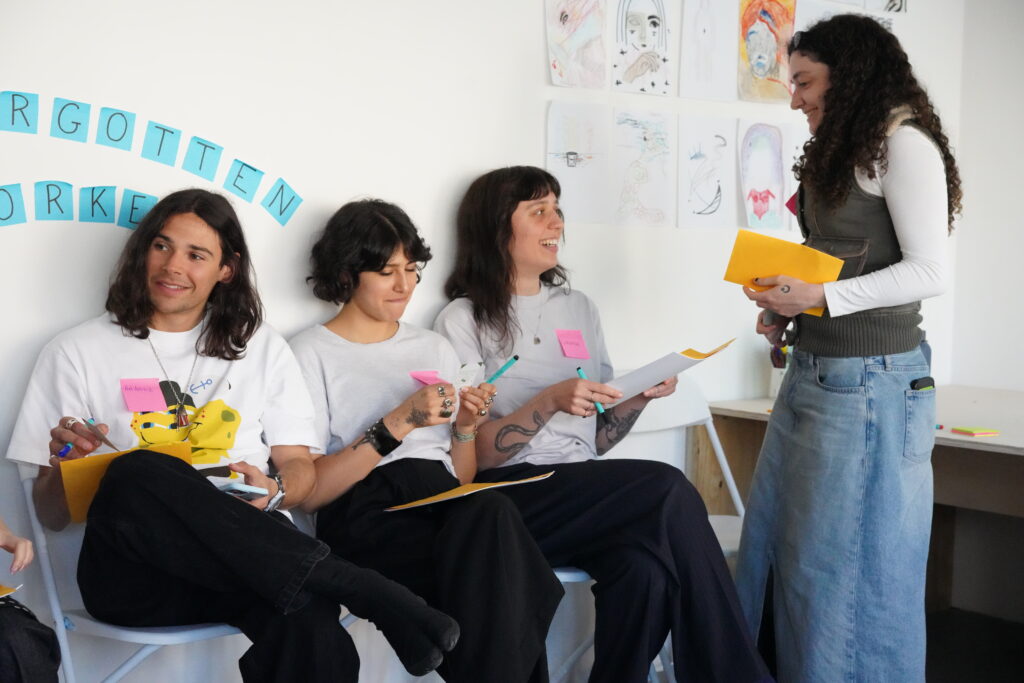
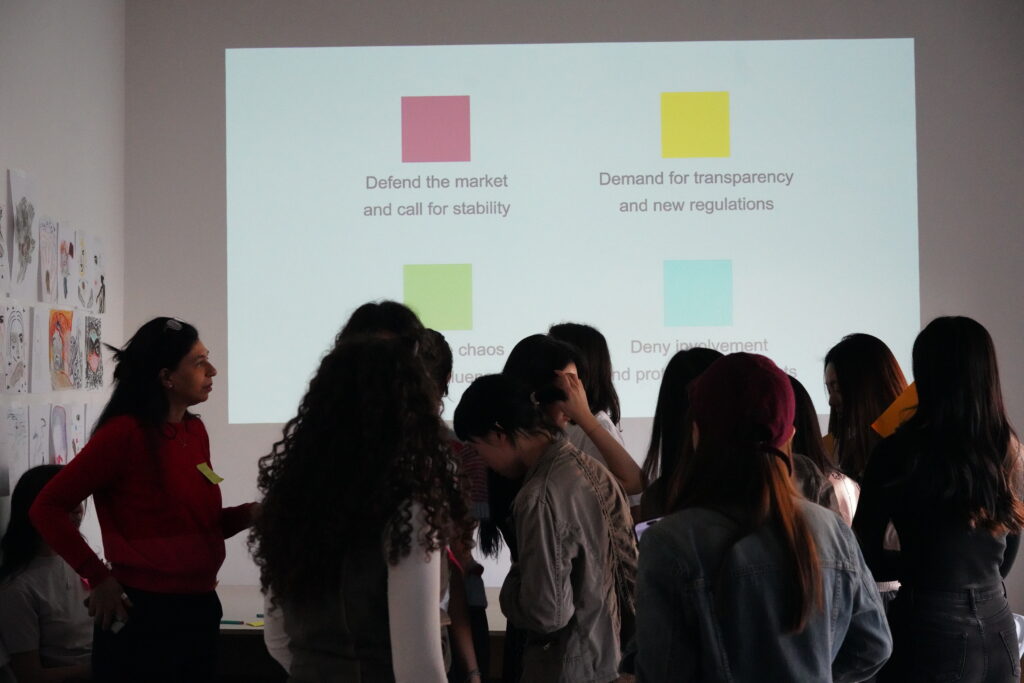
Mapping Labour: From Invisible to Visible was organised by Antonia Mejia Arango, Chuyan Wang, Denise Lin, Jiagi Cao, Jimin Lee, Junwen He, Marina Quevedo Bermejo, Mingran Zhang, Natalia Godoy, Qingyang Sun, Qinxue Lin, Samuel Weill, Sara Paowana, Shuhui Yang, Tianyi Xie, Yiyang Jiang, Yu Wang, Zeyue Zhang and Zhining Chen
And Others Group Exhibition:Responding / Ignoring-July 2025
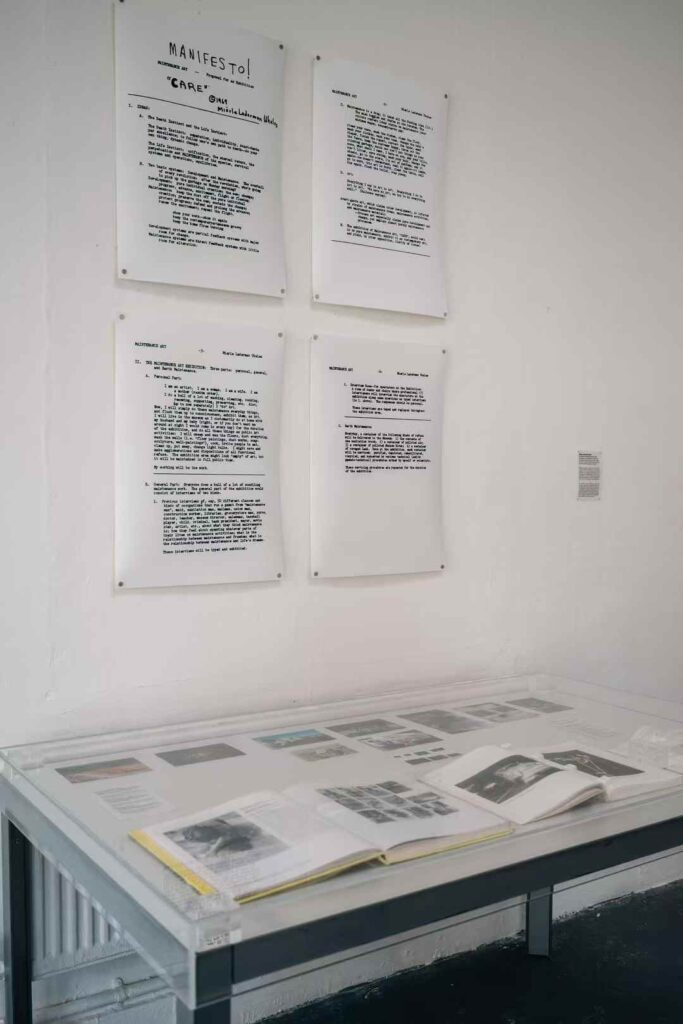
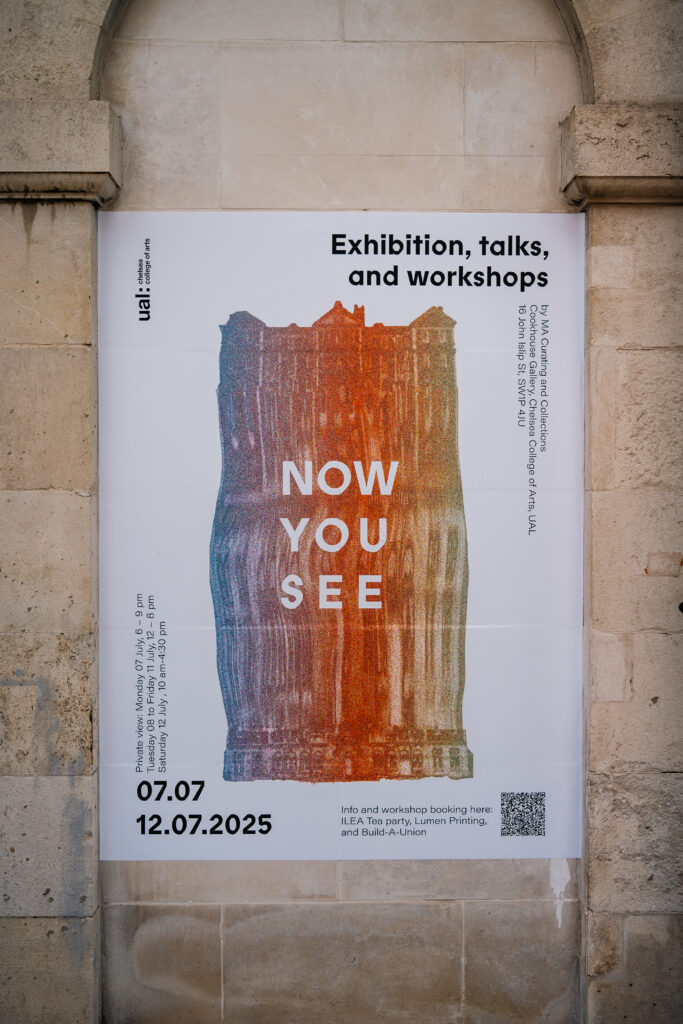
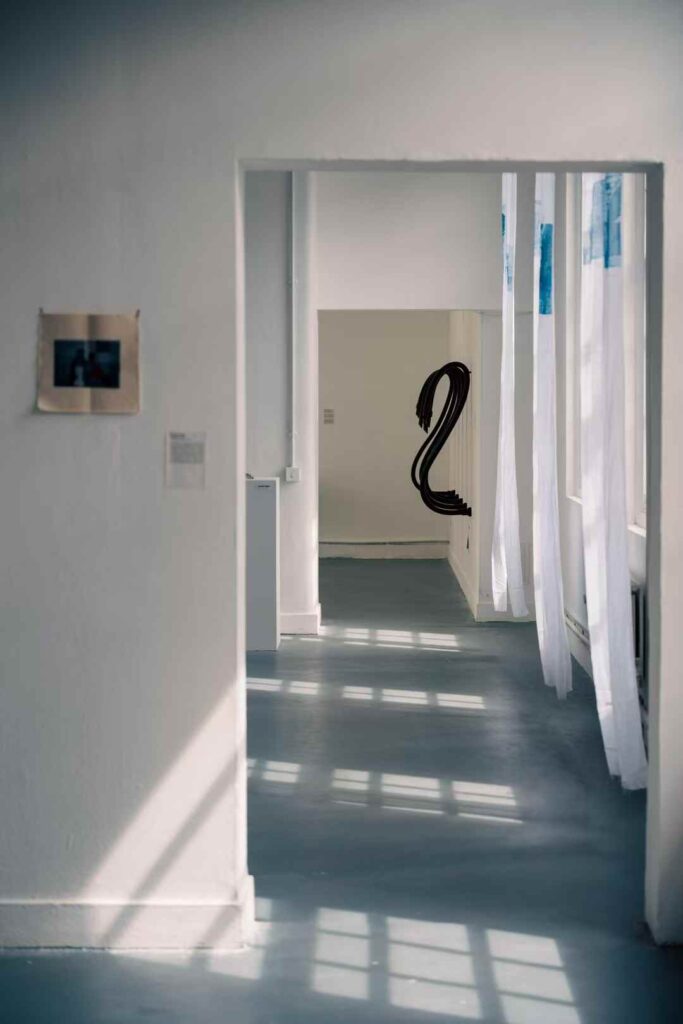
“Responding / Ignoring” grows out of And Others: The Gendered Politics and Practices of Art Collectives (Lina Džuverović) and turns its focus to the backstage of contemporary culture—the indispensable but undervalued labour of planning, cleaning, archiving, and caretaking that makes every exhibition possible. Entering the gallery, visitors first encounter excerpts from Mierle Laderman Ukeles’ landmark Manifesto for Maintenance Art and photographic traces of her “Maintenance Art” performances, reminders that sweeping a floor or polishing a handrail can be as conceptually charged as painting a canvas. These archival fragments anchor the show’s historical lineage while exposing how maintenance remains structurally invisible.
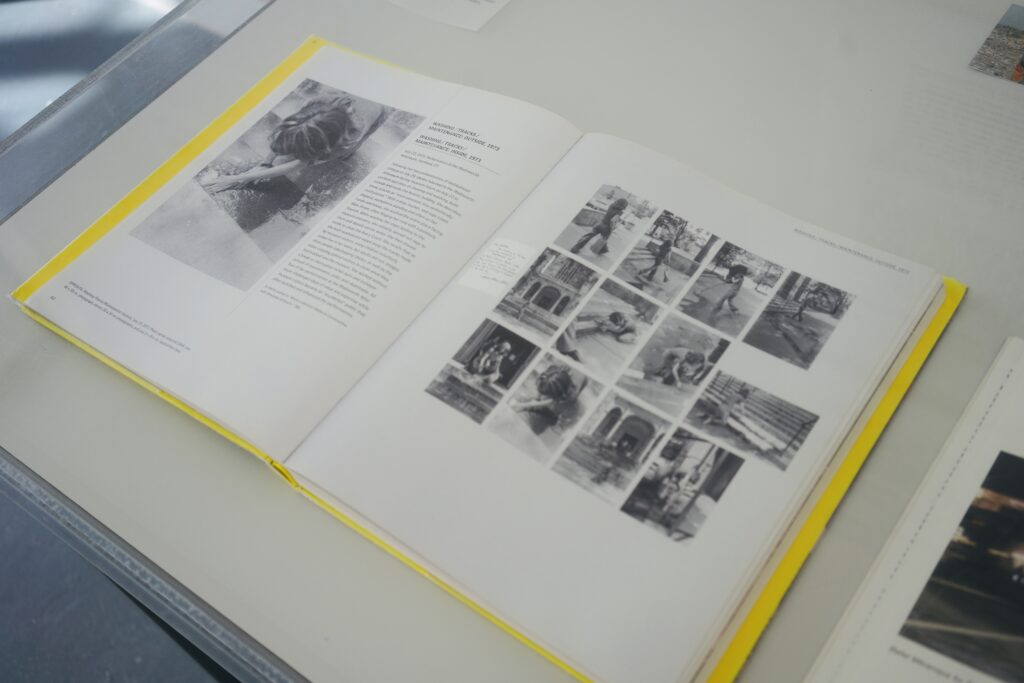
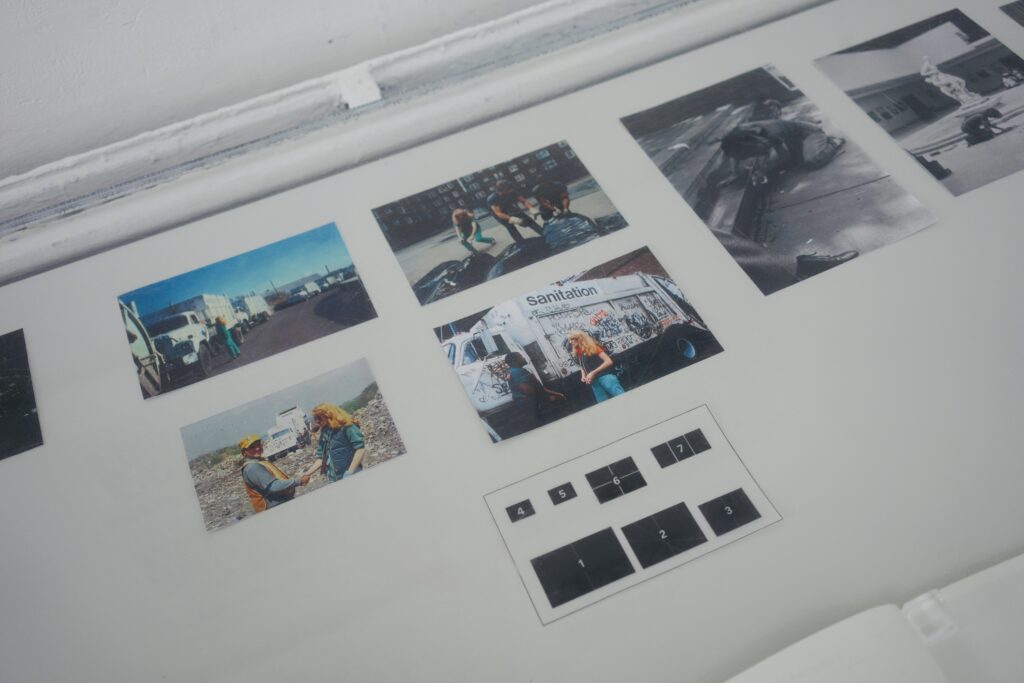
Against this backdrop, José Garcia Oliva’s installation Whispers Amidst the Noise fills the room with hushed voices transmitted through five six‑foot vacuum‑cleaner hoses. Each hose relays recorded testimonies from university cleaning staff—stories normally drowned out by mechanical hum—forcing listeners to bend, lean in, and quite literally attune their bodies to hidden labour. Nearby, terminals offer open access to Oliva’s Latin American Protest Archive, a living digital repository of posters, photographs, and ephemera from civil‑rights movements across the continent, underscoring how struggles for recognition and fair pay reverberate far beyond the art world’s walls.
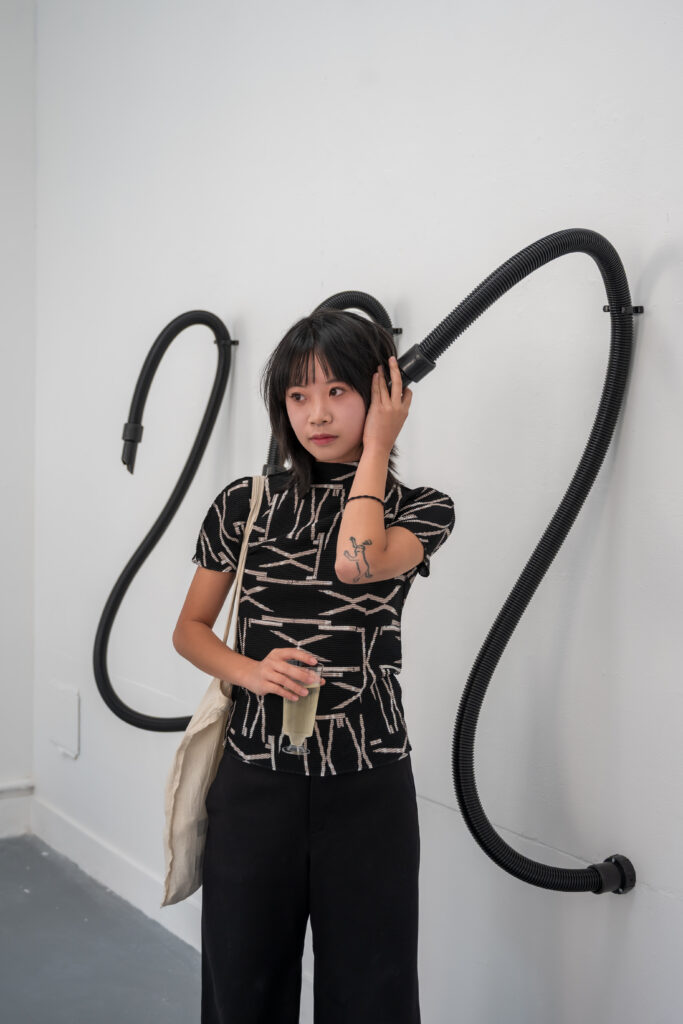
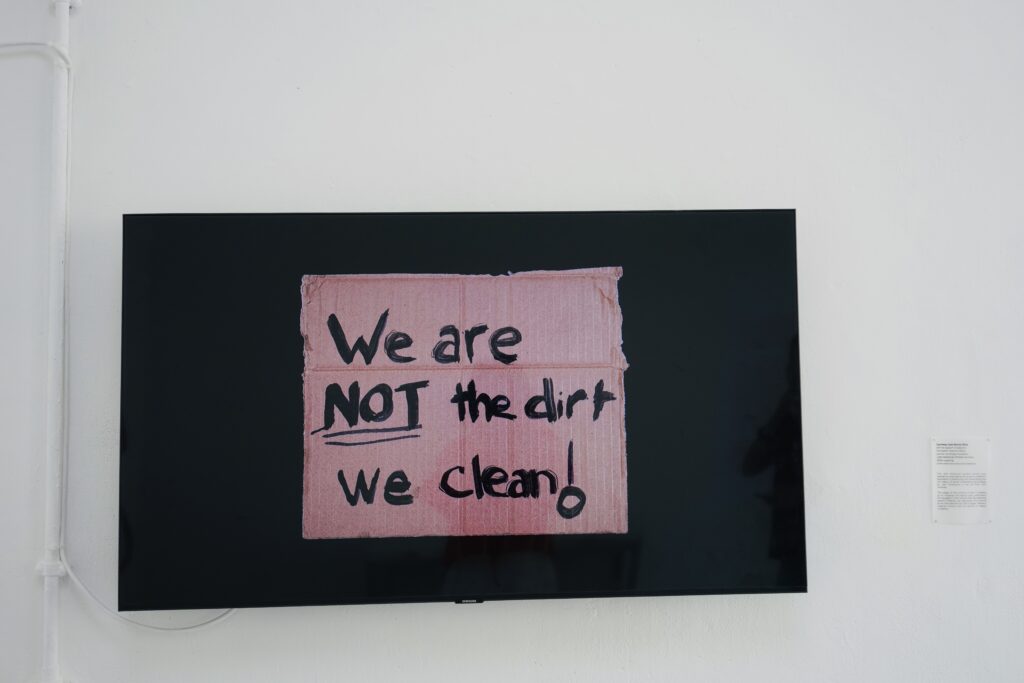

The exhibition culminates with Pay Me or Let Me Sleep, a collective statement devised by And Others Lab after studying the Bare Minimum Collective’s demands for equitable compensation. Printed as a floor‑to‑ceiling wall text and periodically read aloud, the declaration rejects the romantic myth of “labour of love” and insists that cultural work is real work that merits security rather than disposability. Together, these elements transform the gallery into a site where maintenance, protest, and care are not ancillary to artistic practice but its very foundation, urging institutions and audiences alike to recognise—and remunerate—the invisible forces that sustain culture.
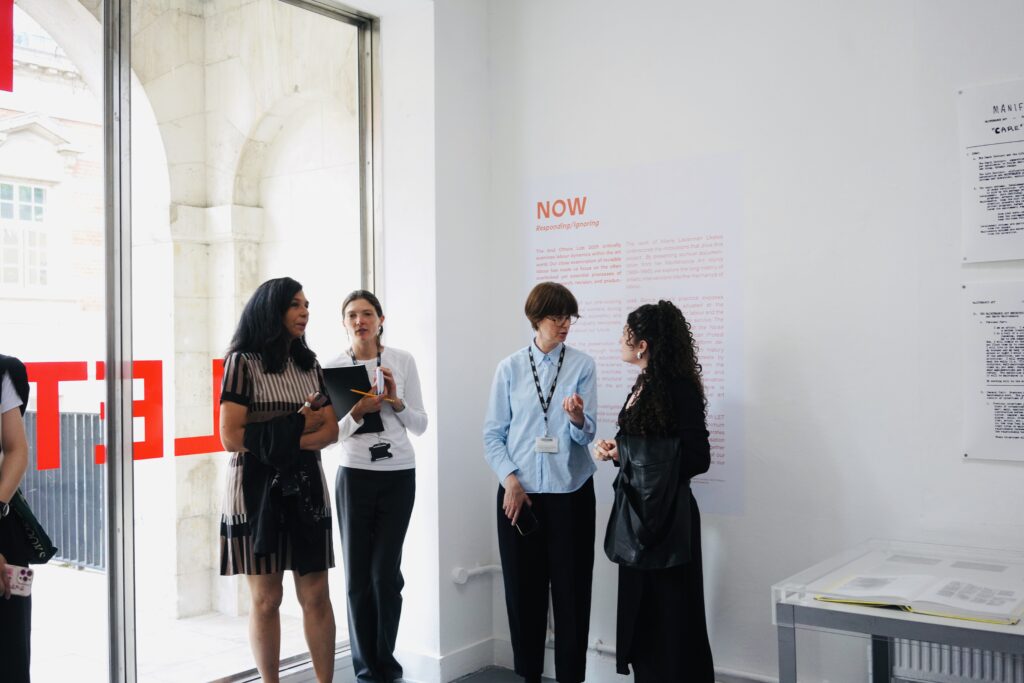
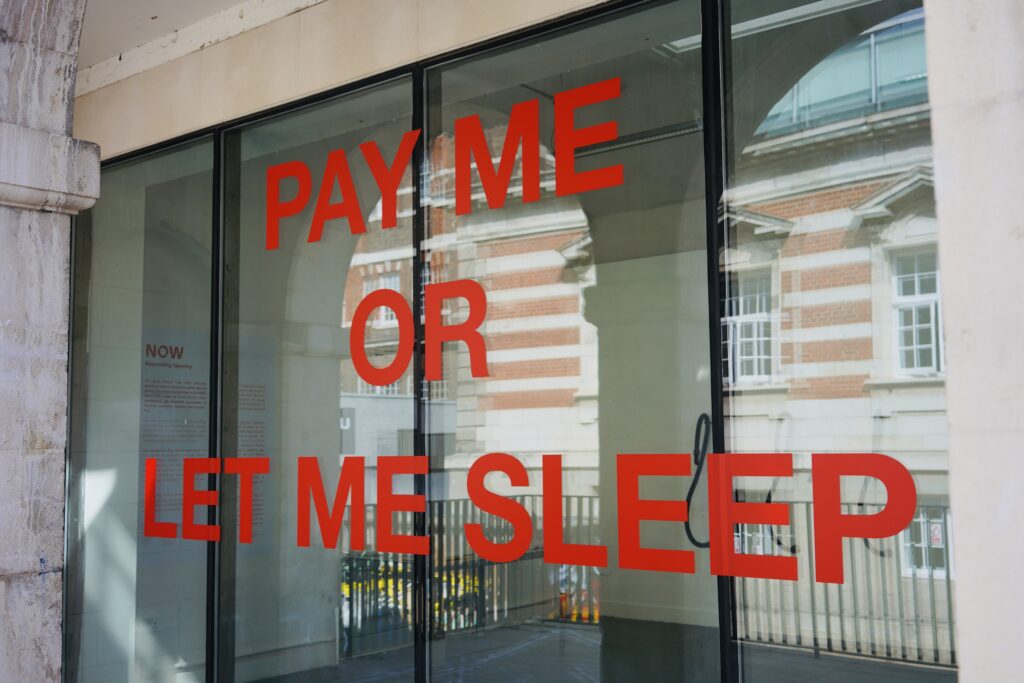
Written by: Qinxue Lin, Junwen He, Yiyang Jiang
